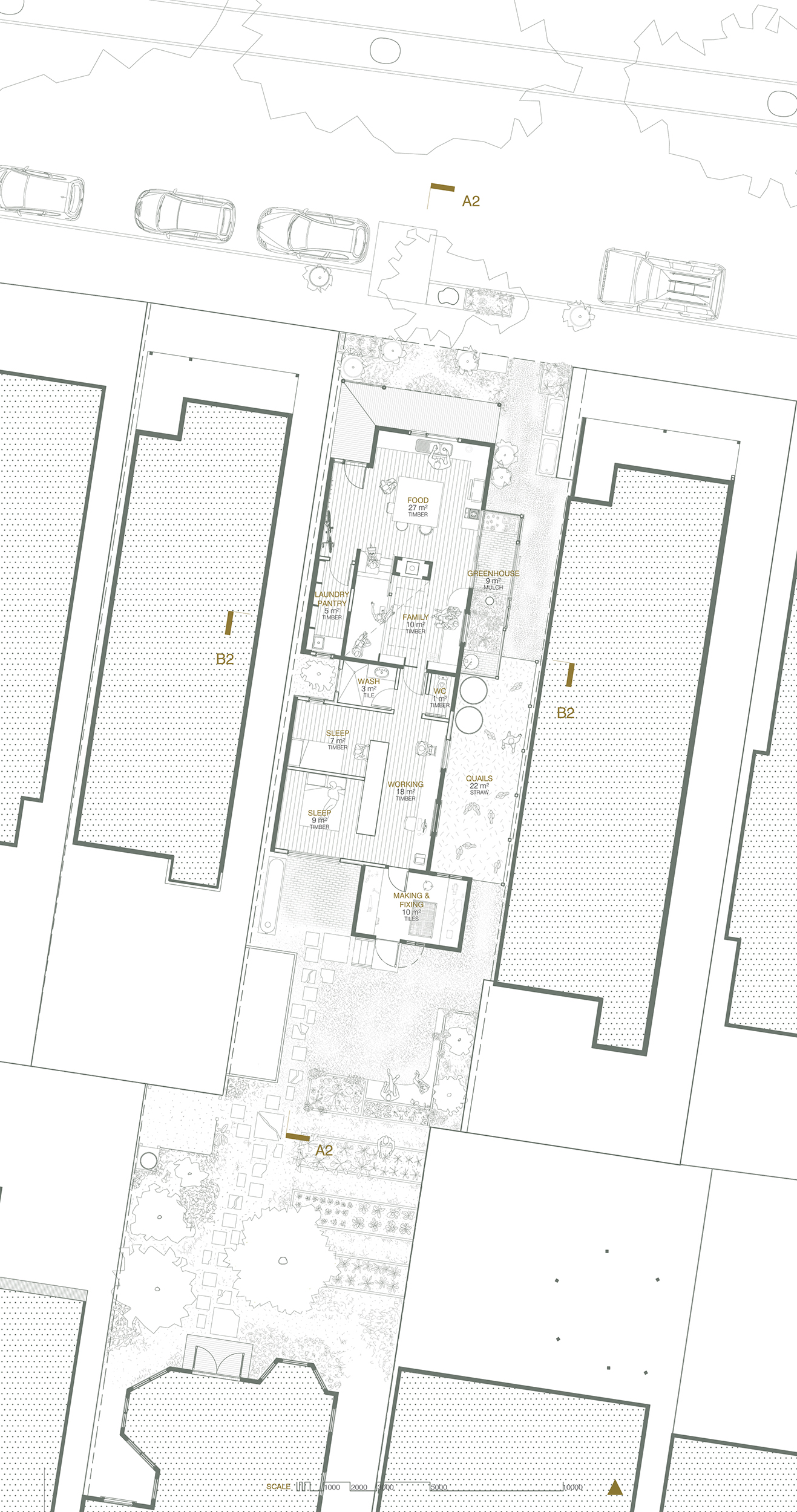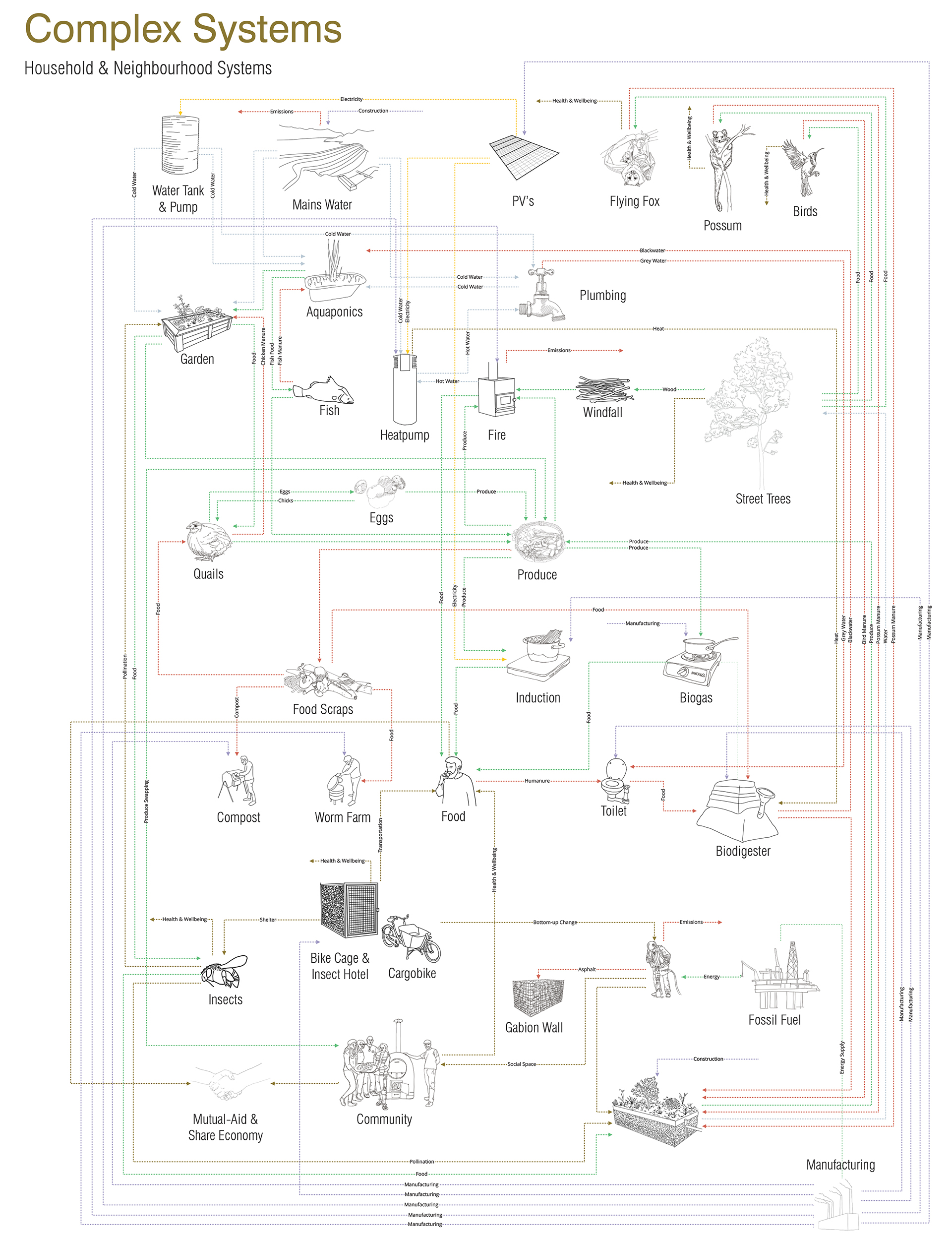Dylan Newell
Supervisor: Associate Professor Rochus Urban Hinkel
_
Practising Degrowth
This thesis contemplates a future scenario where disruptions are the new normal—mega-fires, pandemics, storms, economic contraction, and maybe fuel shortages too. This scenario is a future anticipated for 50 years by the Limits to Growth report. However, the project confronts these issues imaginatively and positively with a bottom-up approach. It explores degrowth via the aesthetics of reinhabiting existing buildings and landscapes and uses complex-systems theory to establish alternative living patterns, anticipating emerging positive feedback loops.
Having been trained to do and want more means doing less is difficult. It requires imagination. Here, instead, care is taken to investigate deconstruction and reuse. Degrowth questions the imperative to grow the economy and therefore, a home-based lifestyle of sufficiency is paramount. It asks if we can lead better lives with less? It pursues an alternative path down from our fossil fuel party. This project explores how a family can reinhabit an existing home while also creating an informal co-housing arrangement by removing a boundary fence.
The design is about shifting living patterns, making small changes that have a meaningful impact. Low-tech systems increase resilience while integrating degrowth living patterns into the everyday. The added complexity increases resilience—having many integrated, and overlapping systems adds redundancy. Losing one part doesn’t bring down the entire system—like we have recently seen with flooding in Victoria or the cold snap in Texas. If disruption is the new normal, then redundancy should be the new buzzword.
As the limits to growth reveal themselves over the coming century, we might be stuck with reinhabiting the world we already have. But in that, we can reconnect with each other and find joy in the world we build. This project explores an alternative practice methodology of re-inhabitation.









